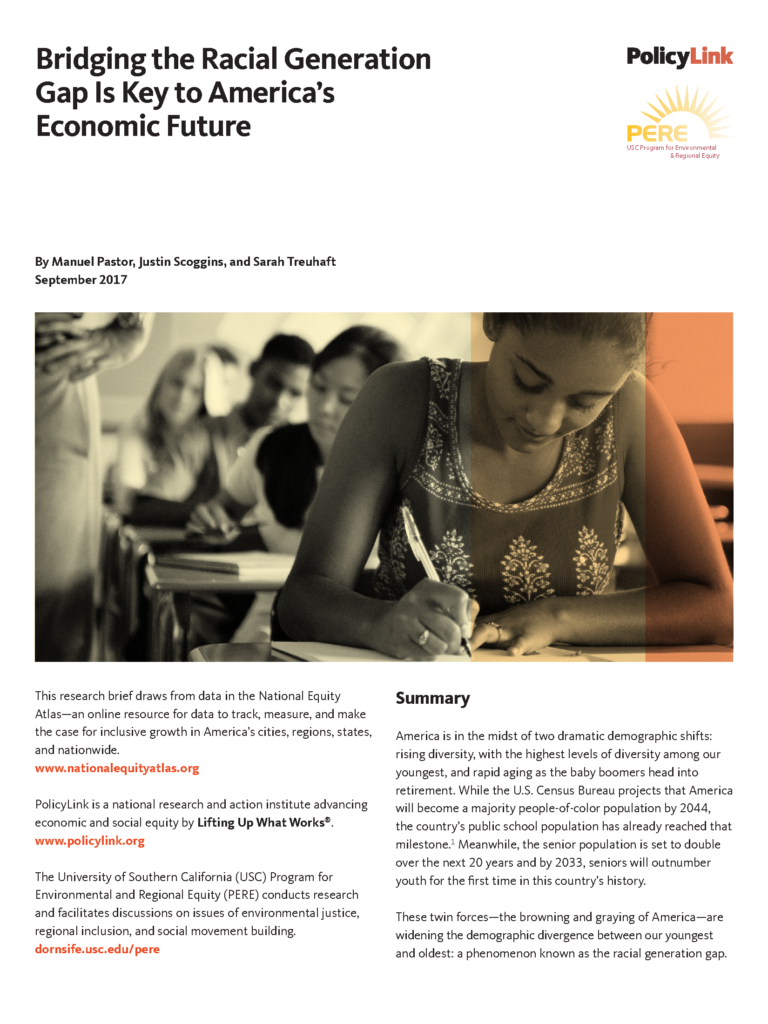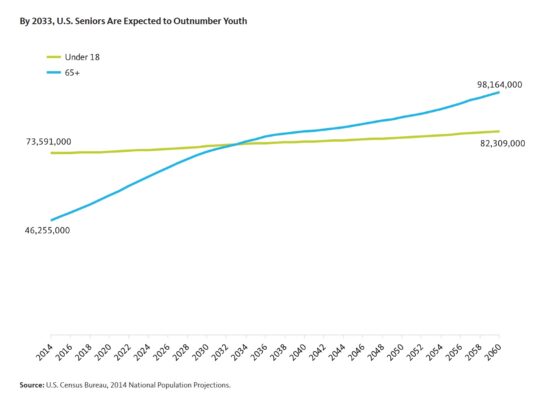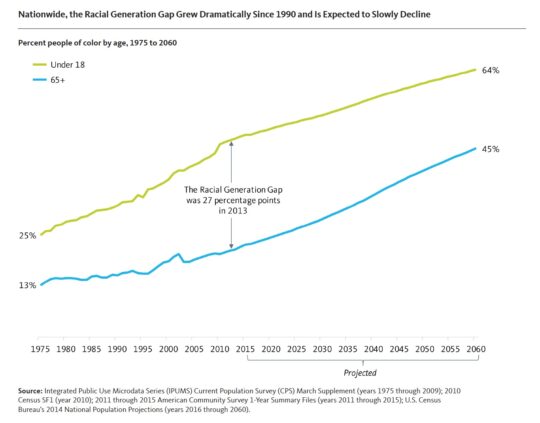
September 5, 2017
By Manuel Pastor, Justin Scoggins, and Sarah Treuhaft
Please note: reports dated earlier than June 2020 were published under our previous names: the USC Program for Environmental and Regional Equity (PERE) or the USC Center for the Study of Immigrant Integration (CSII).
In 2015, 78 percent of America’s seniors were white while 49 percent of the nation’s youth were people of color—a phenomenon that we call the racial generation gap. To the extent that racial divides result in predominantly white seniors choosing not to invest in a more racially diverse young population, this could hamstring the development of the next generation of workers and leaders. This research brief by PolicyLink and USC PERE examines the growth of the racial generation gap and its effect on per-child k-12 education spending.
We find that every percentage-point increase in the racial generation gap is associated with a decrease in state and local per-child education spending of around 1.5 percent. This adds up in places that have seen a lot of demographic change. For example, Nevada’s spending could be about $2,600 more per student if there was no rise in racial generation gap since 1990.
Given this relationship, it is critical to ensure equitable school funding, direct investments in youth, and build multi-generational coalitions for change.
Download report
Data Visuals






